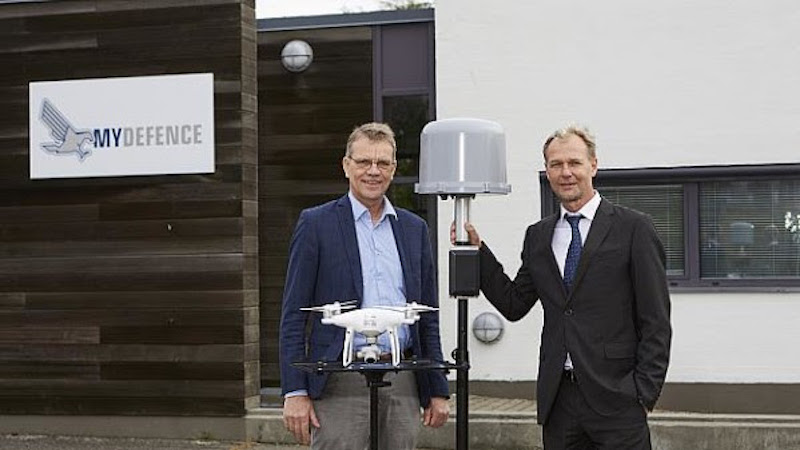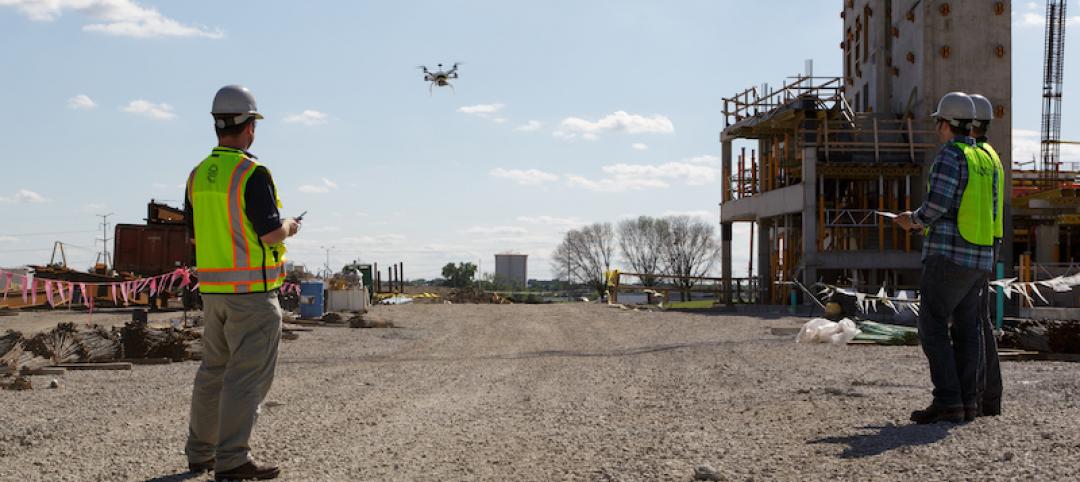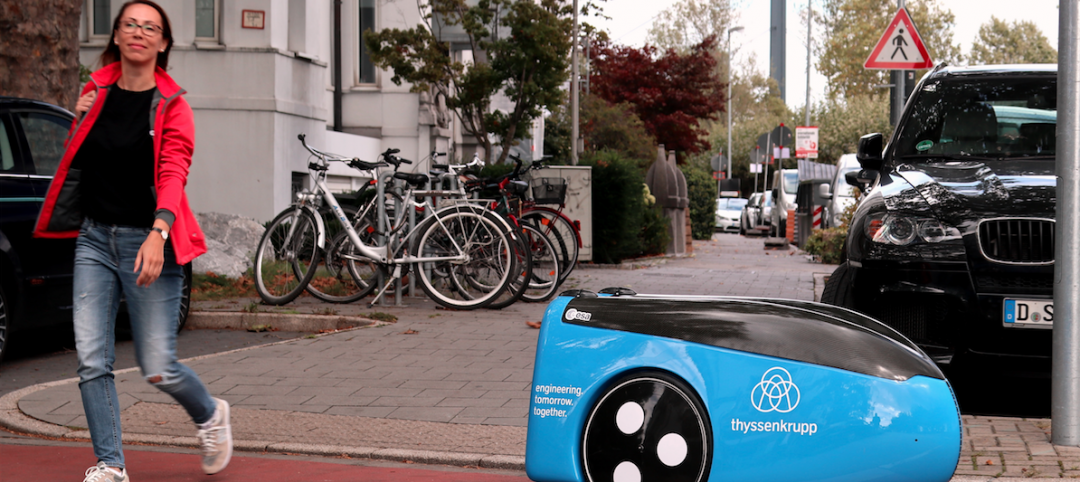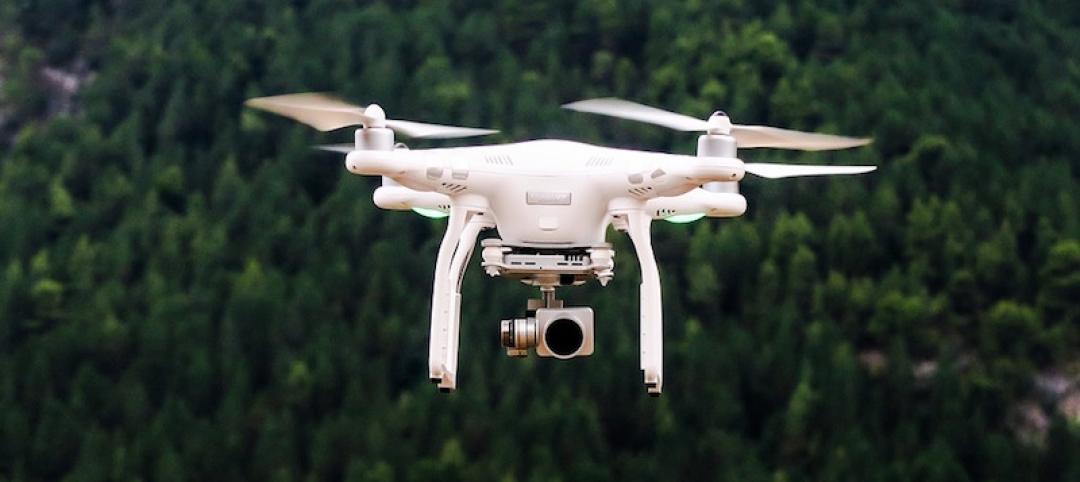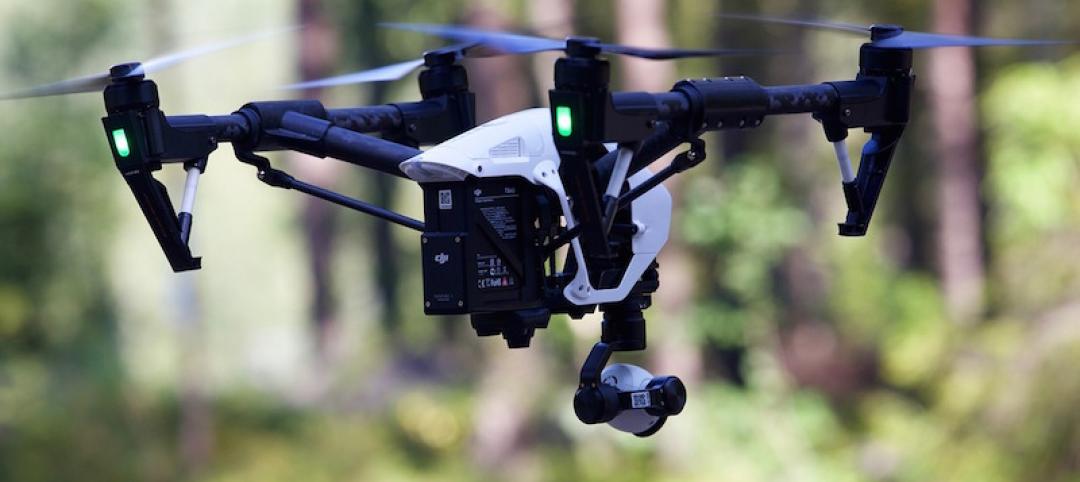It's an unfortunate fact of life: As technology advances to make our lives easier and better, there will inevitably be those who look to exploit a given advancement for their own, often illicit, purposes.
The rise of computers and the Internet brought with it the new phenomenon of cyber crime. The solution was an equal and opposite rise in security technology.
It may be impossible to completely eliminate someone from using a new piece of technology for unintended purposes, but the next best option is to attempt to stay one step ahead in the safety and security department. This is exactly what Denmark-based MyDefence Communication is attempting to do for one of the hottest new technologies on the market: drones.
Drones have found a loyal following among hobbyists and have found a regular home in many AEC firms' toolkits for their ability to easily take aerial photos and videos. But they have also wreaked havoc on regulators trying to prevent them from being used for illegitimate purposes, such as a privacy-invasion tool or a weapon. In Iraq, the Islamic State has used drones carrying explosives on the battlefield. Prisons around the world have documented cases of people attempting to smuggle contraband to inmates via drones.
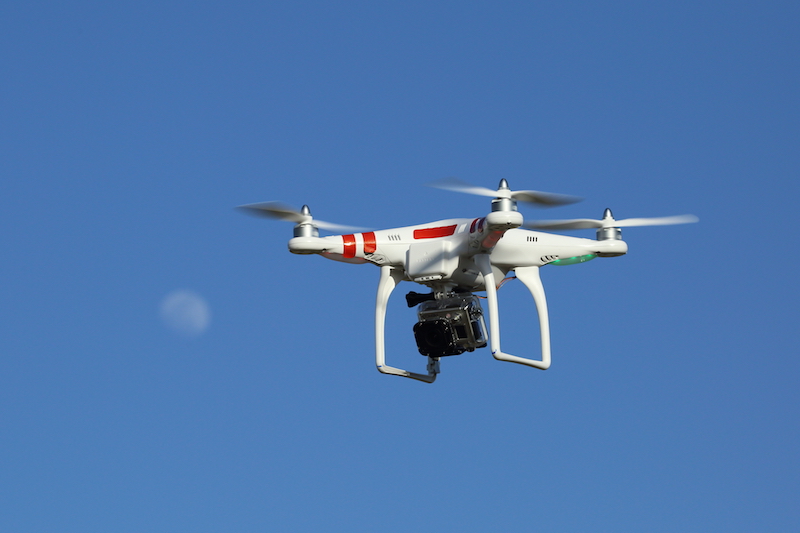
MyDefence Communication’s anti-drone system, KNOX, is being tested in two prisons in Denmark and two stadiums in England. KNOX monitors the airspace over a specific site for foreign objects. When an object is detected, KNOX starts jamming the signal to prevent the drone operator from controlling the device. Concurrently, an alarm goes off that indicates where the drone operator is located.
The stadium tests are being used to fine tune the system to be able to find a specific drone signal among thousands of other signals from cell phones and radios. Once identified, the specific drone signal, and no others, needs to be manipulated so that the drone is forced to flee or is rendered incapable of transmitting data.
“We do not simply stop at intercepting signals, as the current solutions on the market do,” says Christian Steino, MyDefence’s CEO. “We are capable of jamming the drone signal and thereby blocking it.”
KNOX is intended for sites with large crowds or where critical infrastructure, such as a power plant, is in place. The system can be scaled up or down depending on the size of the site.
Related Stories
AEC Tech | Dec 8, 2020
COVID-19 affects the industry’s adoption of ConTech in different ways
A new JLL report assesses which tech options got a pandemic “boost.”
Laboratories | Jul 24, 2020
Customized labs give universities a recruiting edge
CO Architects is among a handful of firms that caters to this trend.
Drones | Mar 11, 2020
AI takes flight
Drones keep getting smarter. How will they fit into construction workflow?
AEC Tech | Feb 13, 2020
Exclusive research: Download the final report for BD+C's Giants 300 Technology and Innovation Study
This survey of 130 of the nation's largest architecture, engineering, and construction firms tracks the state of AEC technology adoption and innovation initiatives at the AEC Giants.
AEC Tech | Jan 29, 2018
thyssenkrupp tests self-driving robot for ‘last mile’ delivery of elevator parts
“With driverless delivery robots, we could fill a gap and get spare parts from our warehouses to the jobsite faster,” said thyssenkrupp SVP Ivo Siebers.
Codes and Standards | Jan 26, 2018
Flying drones while inebriated now illegal in New Jersey
Violators could be sentenced to six months in jail.
Codes and Standards | Sep 26, 2017
Anti-drone technology can ward off unauthorized drone flights
The technology can be used to prevent terrorist attacks and spying.
3D Printing | Jun 14, 2017
This is the world’s first building completely 3D printed onsite
The building is a lab for research on drones and 3D printing technology.
Drones | Mar 8, 2017
Do's and don'ts for operating drones
Some estimate 85-90% of drone operators aren’t FAA certified under the agency’s Part 107 rules or aren’t covered by liability insurance.
Drones | Mar 8, 2017
Flight plan: Drones fill the skies over construction sites
More AEC firms are boarding, as new FAA rules ease restrictions on operating unmanned aerial vehicles armed with sensors and cameras.


